Queens' School 11+ guide

Thinking about applying to Queens' School? Find out everything you need to know about admissions in 2025–2026 and how to prepare your child for success in the South West Herts academic ability test.
Key information for Queens' School
- Address: Queens' School, Aldenham Road, Bushey, Hertfordshire, WD23 2TY
- Number of pupils: approx. 1,700
- Admissions contact: [email protected]
- Number of academic places in Year 7: 94 (35% of total intake)
- 11+ exam: South West Herts Schools Consortium academic ability test
- Catchment area: yes
Dates for your diary
- Tuesday 1st April 2025: registration opens for the South West Herts Schools Consortium ability tests
- Friday 6th June 2025: registration closes for the South West Herts Schools Consortium ability tests
- Saturday 6th September 2025: South West Herts Schools Consortium academic ability test
- Wednesday 10th September 2025: South West Herts sports test
- Thursday 16th October 2025: parents notified of children’s test scores
- Friday 31st October 2025: secondary school applications close at 5pm
- Monday 2nd March 2026: secondary school national offers day
About Queens' School
Queens' School is a partially-selective school for boys and girls in Bushey, Hertfordshire. It was founded in 1969 through the amalgamation of Bushey Grammar School and Alexandra School. It's the largest co-educational state school in Hertfordshire with nearly 1,700 students.
The school provides a caring, safe and challenging environment for learning. There is a diverse curriculum and a variety of extra-curricular and enrichment opportunities. Extensive facilities include 12 sports pitches set in playing fields of over 50 acres.
How to apply to Queens' School
Queens' School is a partially-selective school. While most places in Year 7 are non-selective, children can be prioritised for a place based on a particular ability. Academic, music and sport aptitude places are available at Queens' School. The tests for these places are run by the South West Herts Schools Consortium.
Registration for the South West Herts Schools Consortium selection tests opens on the Consortium website on Tuesday 1st April 2025 and closes on Friday 6th June. You’ll also need to complete a Supplementary Information Form (SIF) to apply for an academic ability test. This will be available to download from your target schools(s) website.
The academic ability test will be held on Saturday 6th September 2025. You’ll be notified of your child’s test scores on Thursday 16th October 2025.
To apply to Queens' School, you’ll need to name the school as one of your preferred schools on the secondary school common application form. This will be available on your home council website from early September and must be submitted by Friday 31st October 2025.
Remember – passing the academic ability test doesn’t guarantee that your child will be allocated a place under the academic criterion. Many selective schools are often oversubscribed with qualified children. Schools and their admissions authorities work through admissions criteria to prioritise children for places. We’ve included the admissions criteria for Queens' School below.
What does the academic ability test involve?
The academic ability test consists of two papers. These papers are produced by GL Assessment – one of the UK’s leading providers of 11 plus exams. The two papers are:
- Maths: questions based on the Key Stage 2 national curriculum for maths.
- Verbal reasoning: questions which test your child’s ability to use logic and solve problems with written information, such as words, letters, symbols and numbers.
Both papers are multiple-choice. Your child will be given a question booklet and an answer sheet for each paper. The answer sheet is marked using OMR (optical mark recognition), which scans the marks your child has made to indicate their chosen answer(s) for each question.
Is your child ready for the 11+?
See where they stand in minutes. Atom’s free 11+ baseline tests give you an instant breakdown of their strengths and gaps. Know exactly what to focus on next and start preparing with direction, not uncertainty.
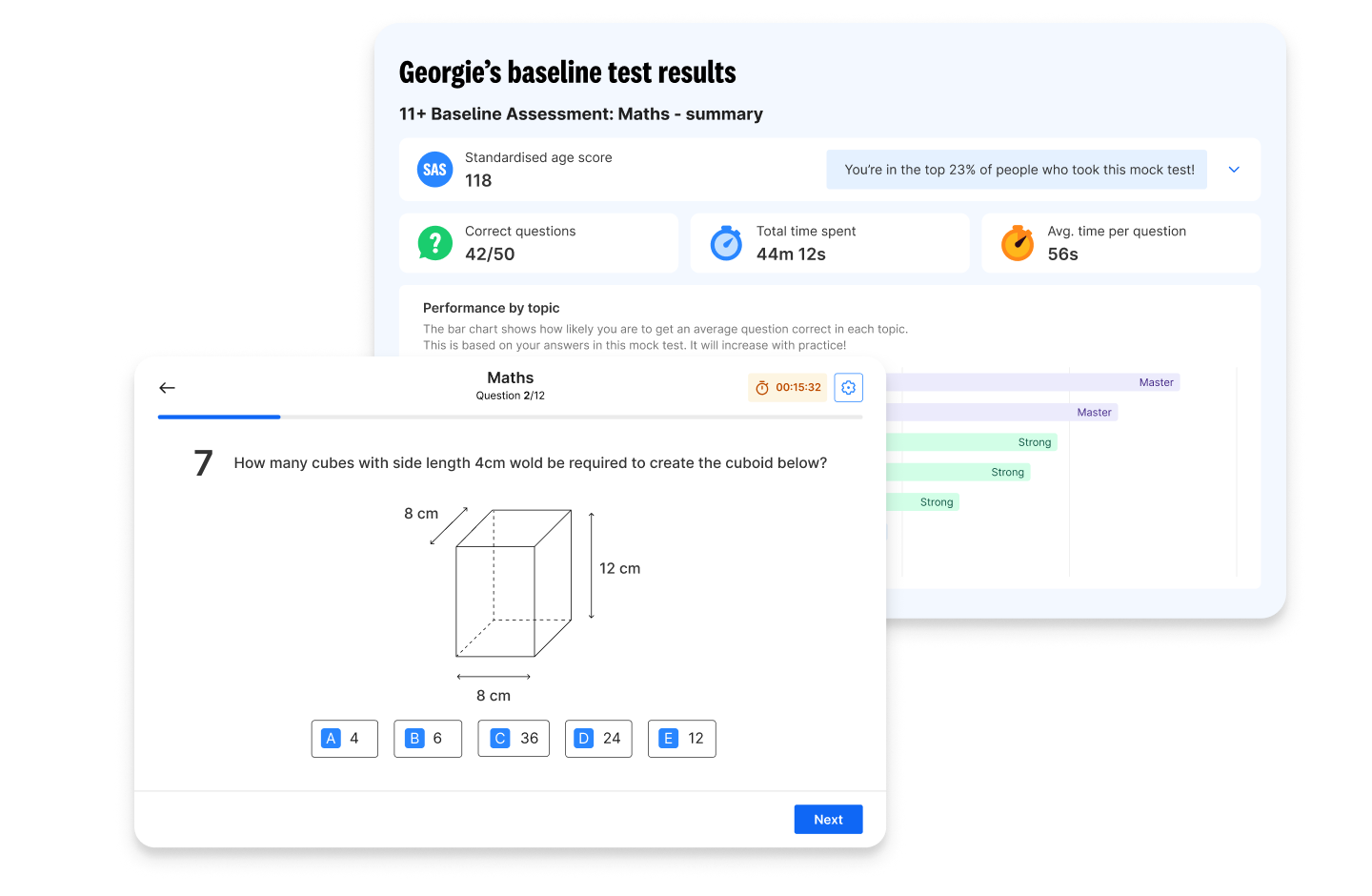
How are academic places allocated at Queens' School?
After the academic ability test, your child’s answer sheets are marked using Optical Mark Recognition (OMR). This technology picks up the marks your child has made to indicate which answers they think are correct. Your child receives a mark for every correct answer.
These marks are then age-standardised. Age-standardisation is a common practice in 11 plus scoring and ensures younger children aren’t disadvantaged. Standardised age scores for each paper normally range from 60 at the lowest end, to 142 at the highest end.
- A single standardised score of 80 or below represents the bottom 10% of the year group
- A single standardised score of 100 represents the average score for the child's year group
- A single standardised score of 120 or above represents the top 10% of children in that year group
The highest standardised age score a child can achieve for a single paper is usually 142. This score would place them within the top 1% of children taking the test.
Your child’s standardised age scores for each paper are then added together, and all scores are placed in rank order from highest to lowest. When the two tests are added together, the range is between 140 and 282.
Queens' School has 94 places available under the academic criterion (35% of the total Year 7 intake). These places are offered to children in descending order of their standardised test score. In order to distinguish between children who have the same lowest ranking score, the proximity of how close the child lives to the school is used as the deciding factor.
Is there a catchment area for Queens' School?
Queens' School does have a catchment area. Only children who live within the catchment area are eligible for an academic ability place. The catchment area covers the following postcodes:
- WD3 to WD7
- WD17 to WD19
- WD23 to WD25
- AL2 (south of the M25)
- HA3 6
- HA5 3, HA5 4
- HA6
- HA7 3, HA7 4
Here are the lowest scores for which children were offered academic places at Queens’ School in the last few years:
- 2024: 186
- 2023: 181
- 2022: 186
Atom’s top tips to prepare for the academic ability test
The South West Herts Schools Consortium academic ability test is designed to identify children working at the top of their year group. Here are our top tips to help you and your child feel confident for exam day!
Bitesize learning
It’s important to build a good knowledge base before the exam. Using a ‘little and often’ approach when learning is key – our brains encode new information more effectively when dealing with smaller ‘chunks’ of information. For children aged 10–11, child psychologists recommend regular study sessions of 20–30 minutes.
Atom Home makes learning a more enjoyable process for your child. They'll explore exciting worlds full of interactive questions, earning coins to spend in the Atom shop. Atom adapts to your child, showing them questions at just the right level of difficulty to keep them motivated.
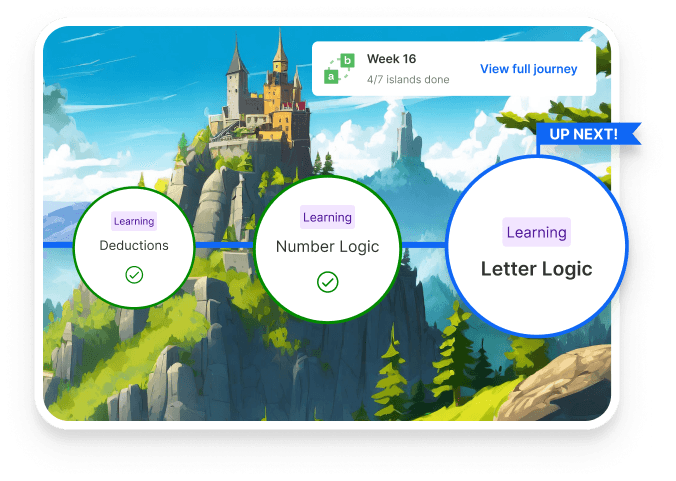
Read widely
Your child will need to answer verbal reasoning questions in the academic ability test. Verbal reasoning involves analysing and interpreting written information. Regular reading is a great way to help your child build these skills.
Encourage them to read books from different genres and by a diverse range of authors. Increasing the variety of your child’s reading will help them understand different styles, tones and purposes. Meanwhile, reading a little every day will help widen their vocabulary, sharpen their analytical thinking, and enhance their imagination.
Refine exam technique
When your child feels confident with the topics they’ve learnt in Year 5, they’ll be ready to put their knowledge to the test.
Practice tests can help your child develop problem-solving skills and build confidence working under test conditions. They’re also a great way to consolidate learning and highlight knowledge gaps for further improvement.
With Atom Home, you'll unlock online mock tests and printable practice papers for the South West Herts Schools Consortium 11 plus. Enjoy automatic marking and progress tracking with the online tests, and help your child get familiar with the real exam experience with printable practice papers.
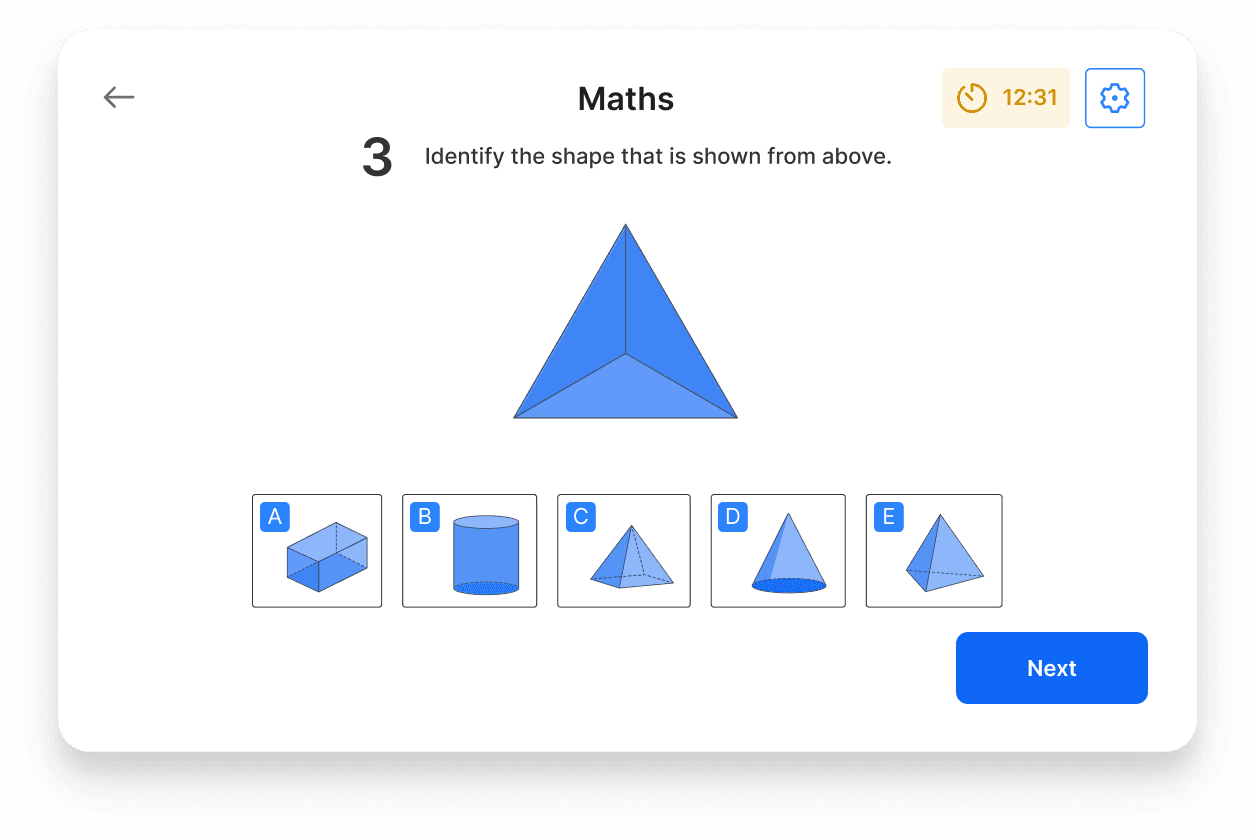
Celebrate progress
Setting regular, achievable goals and celebrating your child’s progress – no matter how big or small – will help keep their motivation high.
Make sure to encourage a growth mindset. This means celebrating effort, as well as achievement! When your child makes mistakes or struggles to understand a particular topic, help them understand that they’ll improve through practice. Regular praise will help your child improve their resilience when tackling new and challenging topics.
Take control of your child’s 11+ preparation.
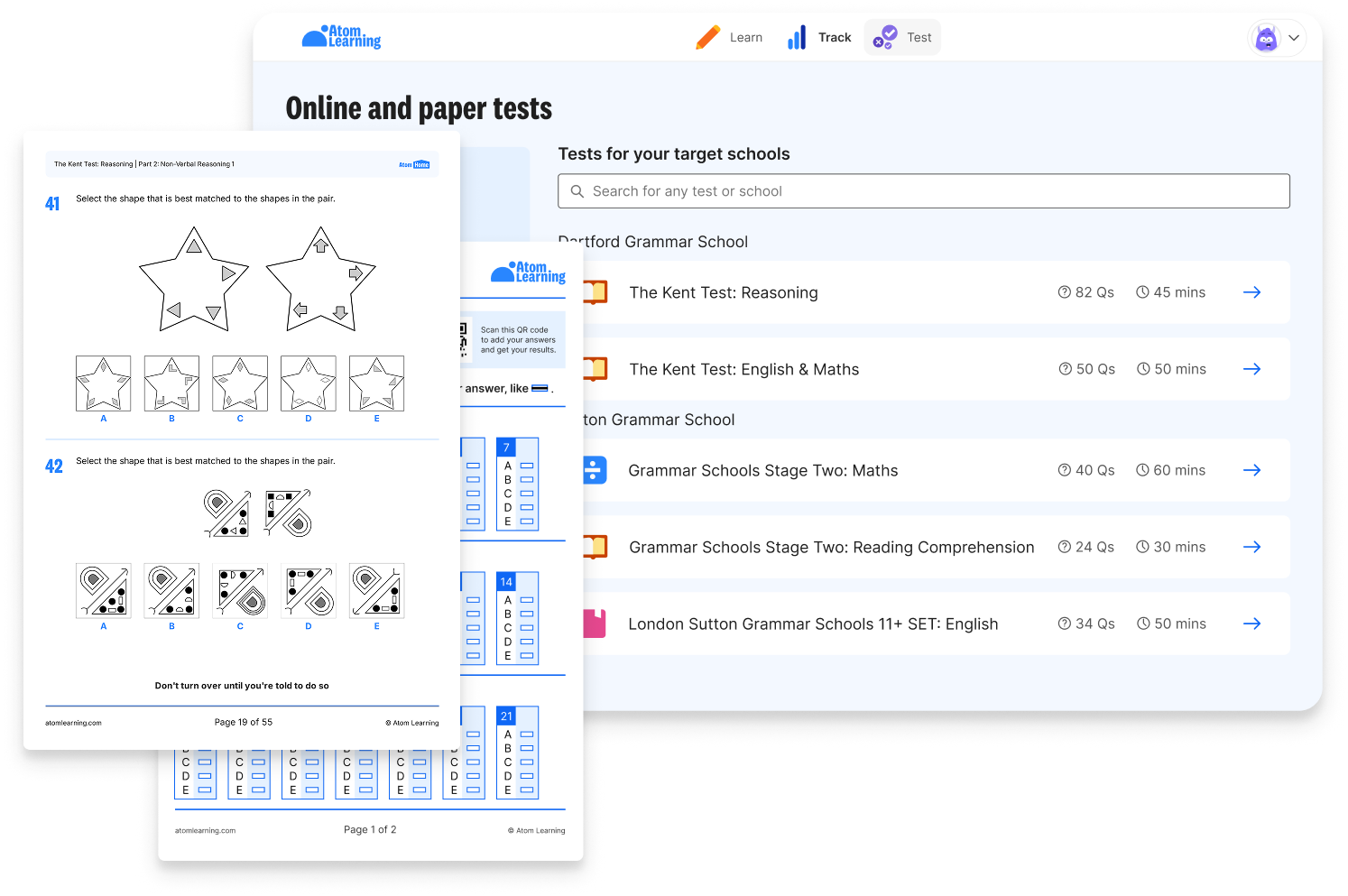
Not sure if your child is on track for the grammar school 11+? You don’t need to guess what to cover or whether they’re ready. Atom shows you exactly what to practise each week and how they’re performing, so you can stay ahead of the process without the stress.
- Follow personalised weekly exam plans that show them what to learn next.
- Download replica 11+ practice papers and upload a photo for instant, stress-free marking.
- Track progress and see how they compare to others applying to the same schools.
Start your free trial and help your child feel fully prepared for the 11+.



